
The Plague is a 1947 absurdist novel by Albert Camus. It tells the story from the point of view of a narrator in the midst of a plague sweeping the French Algerian city of Oran. The narrator remains unknown until the start of the last chapter. The novel presents a snapshot of life in Oran as seen through the author's distinctive absurdist point of view.

The Trial is a novel written by Franz Kafka in 1914 and 1915 and published posthumously on 26 April 1925. One of his best-known works, it tells the story of Josef K., a man arrested and prosecuted by a remote, inaccessible authority, with the nature of his crime revealed neither to him nor to the reader. Heavily influenced by Dostoevsky's Crime and Punishment and The Brothers Karamazov, Kafka even went so far as to call Dostoevsky a blood relative. Like Kafka's two other novels, The Castle and Amerika, The Trial was never completed, although it does include a chapter which appears to bring the story to an intentionally abrupt ending.

Les Misérables is a French historical novel by Victor Hugo, first published in 1862, that is considered one of the greatest novels of the 19th century. Les Misérables has been popularized through numerous adaptations for film, television and the stage, including a musical.

Osborne House is a former royal residence in East Cowes, Isle of Wight, United Kingdom. The house was built between 1845 and 1851 for Queen Victoria and Prince Albert as a summer home and rural retreat. Albert designed the house himself, in the style of an Italian Renaissance palazzo. The builder was Thomas Cubitt, the London architect and builder whose company built the main facade of Buckingham Palace for the royal couple in 1847. An earlier smaller house on the Osborne site was demolished to make way for the new and far larger house, though the original entrance portico survives as the main gateway to the walled garden.
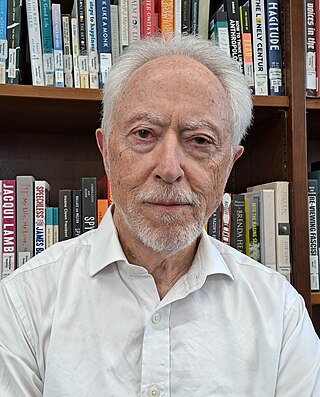
John Maxwell Coetzee FRSL OMG is a South African and Australian novelist, essayist, linguist, translator and recipient of the 2003 Nobel Prize in Literature. He is one of the most critically acclaimed and decorated authors in the English language. He has won the Booker Prize (twice), the CNA Literary Award (thrice), the Jerusalem Prize, the Prix Femina étranger, and The Irish Times International Fiction Prize, and holds a number of other awards and honorary doctorates.
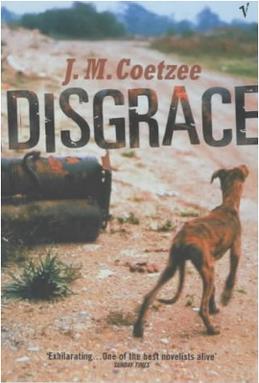
Disgrace is a novel by J. M. Coetzee, published in 1999. It won the Booker Prize. The writer was also awarded the Nobel Prize in Literature four years after its publication.

The Castle is the last novel by Franz Kafka. In it a protagonist known only as "K." arrives in a village and struggles to gain access to the mysterious authorities who govern it from a castle supposedly owned by Count Westwest.
"A Report to an Academy" is a short story by Franz Kafka, written and published in 1917. In the story, an ape named Red Peter, who has learned to behave like a human, presents to an academy the story of how he effected his transformation. The story was first published by Martin Buber in the German monthly Der Jude, along with another of Kafka's stories, "Jackals and Arabs". The story appeared again in a 1919 collection titled Ein Landarzt.
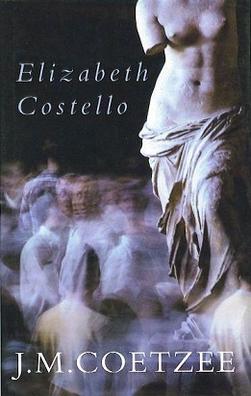
Elizabeth Costello is a 2003 novel by South African-born Nobel Laureate J. M. Coetzee.

Under Western Eyes (1911) is a novel by Joseph Conrad. The novel takes place in St. Petersburg, Russia, and Geneva, Switzerland, and is viewed as Conrad's response to the themes explored in Fyodor Dostoevsky's Crime and Punishment; Conrad was reputed to have detested Dostoevsky. It has also been interpreted as Conrad's response to his own early life; his father was a Polish independence activist and would-be revolutionary imprisoned by the Russians, but, instead of following in his father's footsteps, at the age of sixteen Conrad left his native land, only to return briefly decades later. Indeed, while writing Under Western Eyes, Conrad suffered a weeks-long breakdown during which he conversed with the novel's characters in Polish.

Breakfast in the Ruins: A Novel of Inhumanity is a 1972 novel by Michael Moorcock, which mixes historical and speculative fiction. It was first published in the United Kingdom by the New English Library. The novel centres on Karl Glogauer, who is also the protagonist of Moorcock's Nebula Award winning novella, Behold the Man, his homosexual exploits with an unnamed man from Nigeria, and his fantasies of the past and lives that he could have led.
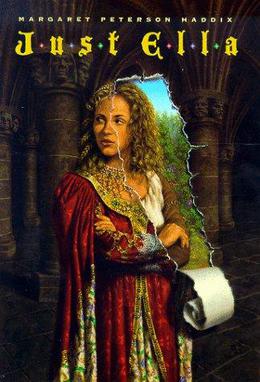
Just Ella is a novel written by Margaret Peterson Haddix and published in 1999 by Simon & Schuster. The story is a retelling of Cinderella with a feminist twist and a different version of the happily-ever-after ending. The plot revolves around Ella, a beautiful girl struggling to find the true meaning of happiness. A companion novel, Palace of Mirrors, was released in 2008.

A Gesture Life is a 1999 novel written by Chang-Rae Lee which takes the form of a narrative of an elderly medical-supply salesman named Doc Hata, who deals with everyday life in a small town in the United States called Bedley Run, and who remembers treating Korean comfort women for the Japanese Imperial Army during World War II. He once owned a medical and surgical supply store and he has an adopted daughter named Sunny. All the problems which Doc Hata has to deal with stem from his experiences serving the Japanese Imperial Army in the World War II.
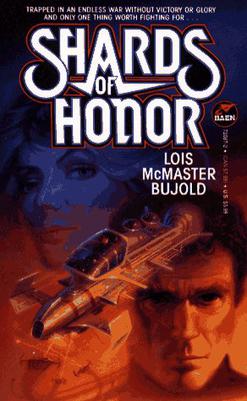
Shards of Honor is an English language science fiction novel by Lois McMaster Bujold, first published in June 1986. It is a part of the Vorkosigan Saga, and is the first full-length novel in publication order. Shards of Honor is paired with Bujold's 1991 Barrayar in the omnibus Cordelia's Honor (1996).

Foe is a 1986 novel by South African-born Nobel laureate J. M. Coetzee. Woven around the existing plot of Robinson Crusoe, Foe is written from the perspective of Susan Barton, a castaway who landed on the same island inhabited by "Cruso" and Friday as their adventures were already underway. Like Robinson Crusoe, it is a frame story, unfolded as Barton's narrative while in England attempting to convince the writer Daniel Foe to help transform her tale into popular fiction. Focused primarily on themes of language and power, the novel was the subject of criticism in South Africa, where it was regarded as politically irrelevant on its release. Coetzee revisited the composition of Robinson Crusoe in 2003 in his Nobel Prize acceptance speech.
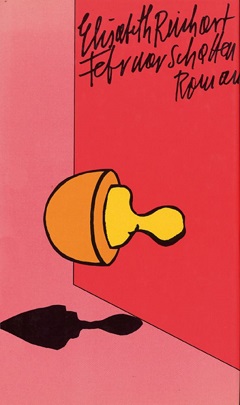
February Shadows is a 1984 historical novel by award-winning Austrian author Elisabeth Reichart. She wrote it as a response to her discovery of the Mühlviertler Hasenjagd, a massacre on 2 February 1945 at the Mauthausen-Gusen concentration camp in Upper Austria. In the Mühlviertler Hasenjagd, the civilian inhabitants of the Mühlviertel hunted down and killed almost 500 prisoners, including men, women and children, who escaped from Special Barracks Number 20.

The Lives of Animals (1999) is a metafictional novella about animal rights by the South African novelist J. M. Coetzee, recipient of the 2003 Nobel Prize in Literature. The work is introduced by Amy Gutmann and followed by a collection of responses by Marjorie Garber, Peter Singer, Wendy Doniger and Barbara Smuts. It was published by Princeton University Press as part of its Human Values series.
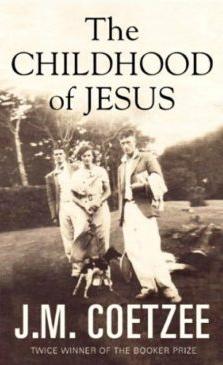
The Childhood of Jesus is a 2013 novel by South African-born Australian Nobel laureate J. M. Coetzee.
Psalm 44 is a novel by Yugoslav author Danilo Kiš. The novel was written in 1960 and published in 1962, along with his novel The Attic, and tells the story of the last few hours of a woman and her child in a Nazi concentration camp, before they escape. In a narrative full of flashbacks and stream-of-consciousness passages, with elements derived from his own life, Kiš sketches the life of a Jewish woman who witnesses the Novi Sad raid, is deported to a Nazi camp where she gives birth to a boy, and escapes with the help of another woman. Months after the war's end she is reunited with her lover, a Jewish doctor who had assisted the Nazis in Joseph Mengele-style experiments.

The Fireman is a post-apocalyptic novel by American author Joe Hill. The novel, his fourth, tells the tale of a deadly spore that has infected most of the world's population. Hill first spoke of the novel in 2013 in promotional interviews for his then-new novel NOS4A2. The novel was released on May 17, 2016.

















